
The Relational Economy
Both romantic and working relationships are under extraordinary pressure. Can we seize this moment to reclaim our hearts from our jobs?


Both romantic and working relationships are under extraordinary pressure. Can we seize this moment to reclaim our hearts from our jobs?

At each step, poor implementation has weakened the U.S. recovery effort.
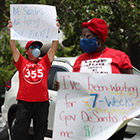
Racism shapes how economics is taught and practiced. When we fail to scrutinize neoclassical assumptions, they perpetuate racist outcomes.

A couple employed by an airport catering company haven’t worked since March. They’re struggling to make ends meet.

Two restaurant workers tell their stories.

Essential workers need genuine, collective empowerment, not just a monetary reward or a rhetorical pat on the back.

What’s behind the drive to “re-open”? Some state governments just want to return to how they previously used unemployment insurance: not to cushion the blow of job loss but to compel participation in the labor market.
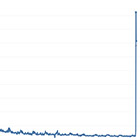
Current unemployment numbers now rival the peak during the Great Depression.
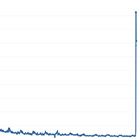
It took just three weeks to hit the number of U.S. unemployment claims that were reached in forty-four weeks during the Great Recession. And that doesn’t include people unable to access antiquated and overwhelmed state application systems.
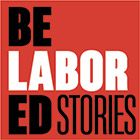
The unemployment system is more confusing than it needs to be.
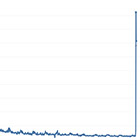
Most downturns in the business cycle occur over a number of months. This spike has occurred in just a couple of weeks.

Unemployment “reforms” in Iowa and other states controlled by the GOP fit neatly with a larger agenda: not to protect workers from low wages, unsafe working conditions, and unbridled employer power, but to compel them to accept whatever they can get.
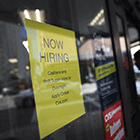
Unemployment is at its lowest since 1969, yet the average American worker remains badly underpaid. Why?
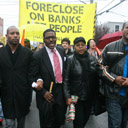
Today’s wealth and employment gaps shatter the myth of a post-racial America.